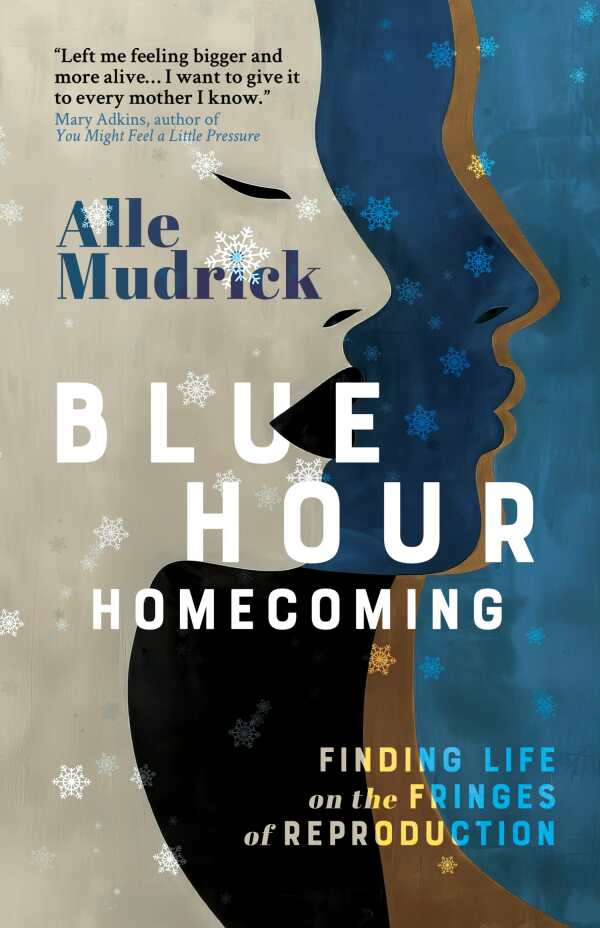Blue Hour Homecoming
Finding Life on the Fringes of Reproduction
Rich with self-reflection, the memoir Blue Hour Homecoming is about loss, parenting, and self-expression.
Alle Mudrick’s musing memoir Blue Hour Homecoming is about how the loss of her first child and two premature births revealed a backlog of trauma.
Moved along by experiences that became springboards for self-reflection, the book’s four parts cover how Mudrick’s dream of having a large family was derailed. First, she discovered a problem with her cervix that led to her baby’s death. She then dealt with postpartum depression, miscarriages, and a fragile pregnancy resulting in a daughter. Later, she had a son during COVID-19 shutdowns; the experience was fraught with continuing medical complications. Still later, she attended to her lifelong desire to become a writer, and the book’s final part is about her work and life outside of parenting.
The book’s flow has a spontaneous and winding quality. There are unexpected segues between scenes that mirror the erratic circumstances that Mudrick faced. The book’s opening scene, for example, outwardly focuses on a hot-air-balloon launch, looked back upon to remark “if only I had known”; Mudrick wonders about her family’s potential life in Albuquerque, and the balloon launch is rendered ancillary and metaphorical, encapsulating her high-flying goals and how far she has to fall. The subsequent narrative continues to take switchback turns; its approach to understanding events is holistic, and meaning sometimes proves elusive.
The prose is evocative and emotive, filled with fleeting images and expressed sensations that are reflective of Mudrick’s fight-or-flight responses to a series of crises. In one scene, Mudrick struggles to cheer on her nephew’s first steps while simultaneously worrying about how her son, who was older than his cousin, was still resisting crawling. Elsewhere, fear is called “hot breath on my neck, its talons on my heels,” and other feelings are also expressed in physical ways. Blood, surgical procedures, and suicidal thoughts are covered in graphic but humane terms too.
Mudrick’s conversations are rendered in a somewhat inconsistent manner: At first, she and her husband speak in exclamations, both loving and distraught as they discuss intense matters; later, the recalled conversations are more explanatory, as when doctors explain Mudrick’s cervical difficulties and her children’s diagnoses. As the book progresses, though, its narration smooths out. Italicized passages are used to reflect Mudrick’s compassionate self-talk, learned from books and therapy; the text becomes less consumed with conveying her worries, and less burdened by comparisons between what might have been and what was. The story works toward a meditative ending, marked by self-acceptance and centeredness.
An introspective memoir, Blue Hour Homecoming is about how grief became the catalyst for honest self-expression.
Reviewed by
Mari Carlson
Disclosure: This article is not an endorsement, but a review. The publisher of this book provided free copies of the book and paid a small fee to have their book reviewed by a professional reviewer. Foreword Reviews and Clarion Reviews make no guarantee that the publisher will receive a positive review. Foreword Magazine, Inc. is disclosing this in accordance with the Federal Trade Commission’s 16 CFR, Part 255.

